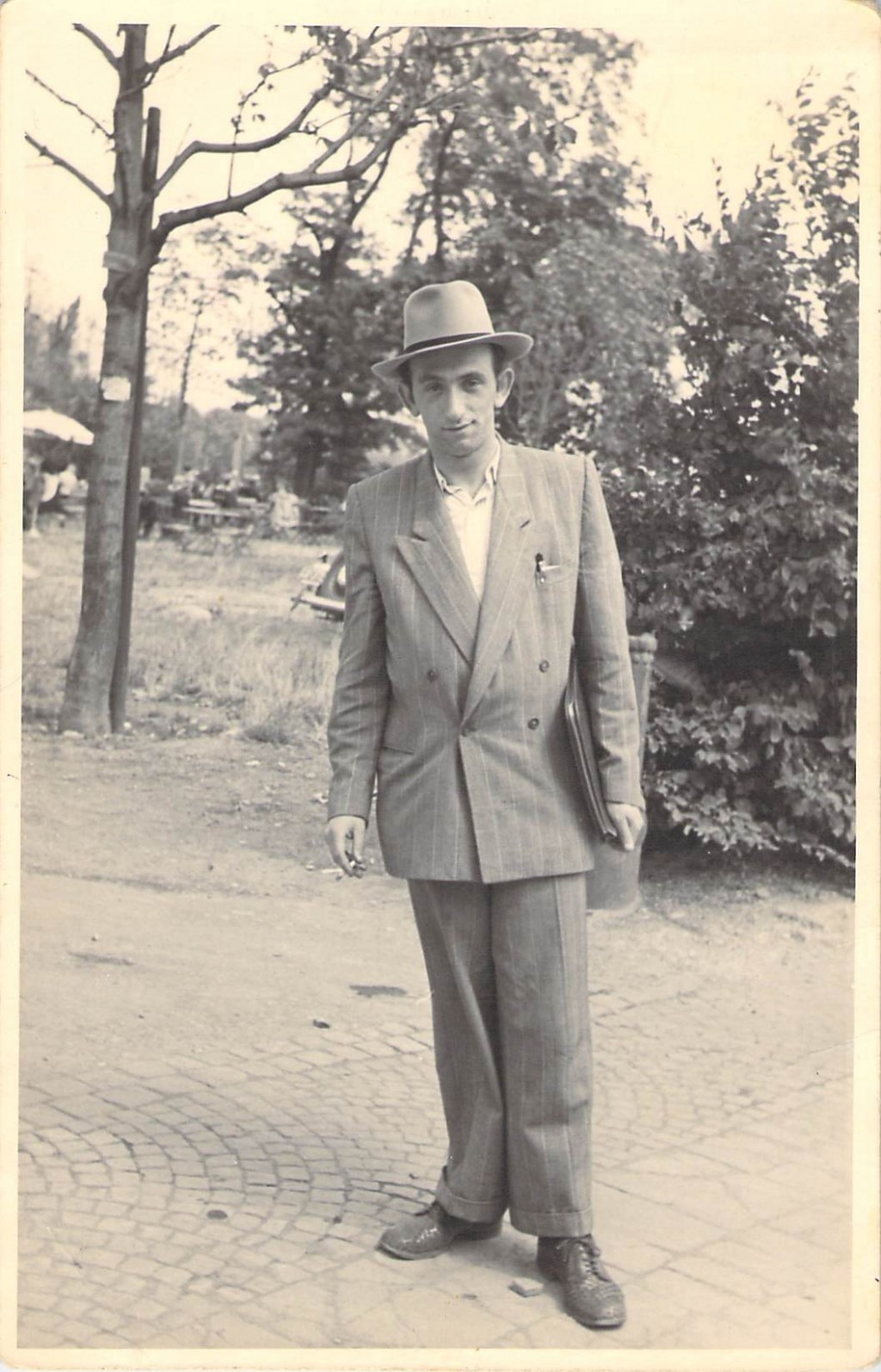He Waved the Red Flag
A few years ago, my shver, Reb Yosef Friedenson, asked me to take him to the Novominsker Rebbe for a kesivah v’chasimah tovah brachah; I, of course, said, “Avada, yes.”
When we entered the Novominsker’s home, the Rebbe seated my shver next to him. My shver said, “You know your uncle saved my life in the camps?” The Novominsker Rebbe said, “I think I may have heard, but what actually happened?”
My shver continued. “In slave labor camp, I was being beaten by a kapo and the Novominsker Rebbe’s uncle, who was also the Novominsker Rebbe, jumped down off the barrack bench and stood between me and the kapo. The kapo shouted, ‘Rabbiner, move away or I’m going to hit you and him.’ The Novominsker Rebbe said, ‘You’re not going to hit him and you’re not going to hit me.’ Amazingly, the kapo walked away.”
For many years, the heintiger Novominsker Rebbe has told us, my father-in-law’s family: “Take care of Yossel; he’s our ‘national treasure.’”
When I first joined the family, I heard a story about Harav Yitzchak Hutner, zt”l, who said, regarding my shver: “When people are embarking on a trip at a train station, and the station is packed full of people and there are children on the train, there is pandemonium. The station is filled with men and women, mothers and fathers, waving their farewells. Everybody is shouting, ‘Goodbye, goodbye, goodbye…’ and as the train pulls out, one by one by one, one person leaves, another person leaves, another leaves, and another… and then the train is all the way down the tracks. However, there is one lady who is still waving her hand… just one. So the station manager comes over to the lady and says, ‘Everybody is gone. Why are you still waving your hand?’ She says, ‘Look, you see the train, there’s a red flag waving. Look at the window — someone is waving a red flag. That’s my son. As long as I can see the red flag, I know I can still wave good-bye to my son.’”
Harav Hutner told our family that Reb Yossel Friedenson is the red flag from the she’eiris hapleitah generation. As long as he was waving that red flag, we had a link to the kedoshim of the past.
Now, the train has turned the corner, and the red flag is gone.
Everybody knew my shver as the ish hazachor, the man of remembrance, and this was his public persona. Everyone knew he represented the frum she’eiris hapleitah, those people who were moser nefesh to keep their emunah intact in the worst of times. But on the inside, he was a poshute, ehrliche Yid — an honest, simple Jew. He had an uncle — it wasn’t a real uncle — but he had an Uncle Pinchas who lived in Hartford, Connecticut, who had no children after the war, and eventually moved to Miami Beach where he lived to be over 100. He was an alman and he had $300,000 that he pledged, as a younger person in his 80s, to the Gerrer Yeshivah. And when he was 100, he told my father-in-law, “What kind of narishkeit did I do leaving them all that money? You’ve got to get the money. You take care of me, you deserve it. Change the will. Change the will.”
My Shver felt that Uncle Pinchas might not be totally aware of what he was asking him to do, so he had him sign a paper, and then he just fulfilled his original request: the $300,000 went to the Gerrer Yeshivah here in Eretz Yisrael and the zechusim of that bequest went to his “uncle.”
I want to take this opportunity to thank our Bubby Yocheved (Topola/Twersky) Friedenson who stayed with my Shver the last few years and helped take care of him.
The final story I want to tell you is about my mother-in-law and my father-in-law and a trip to Germany. Many of you may have known Duvid (“Dubche”) Kahn, z”l. They were friends back in the lager; each saved the other’s life. Dubche lived in Germany after the war and he had a beautiful summer home in Zeifeld. He used to invite my Shver and Shvigger for the summer, sending them Lufthansa airline tickets, and they would spend two weeks there.
On the way back, one time, they came to the airport, and they were given their boarding passes and the seats were not next to each other. So my father-in-law went to the lady at the counter and said, “Excuse me, but it’s a long flight. I want to sit next to my wife.”
“Sorry, there is nothing we can do. If you go to the gate, maybe they can help.”
Nu, they went to the gate and my Shver says, “We want to sit next to each other.”
The reply: “Sorry, sir, there is nothing we can do.”
My Shver rolled up his sleeve and showed her the tattooed numbers on his arm, and he said, “You separated us once before and you’re not going to do it again.”
The lady turned colors and ran inside. Two minutes later, the supervisor came out and said, “We apologize for the mix-up” — and handed them two first-class tickets next to each other.
After tonight, they will never be separated again.



This article appeared in print on page D14 of edition of Hamodia.
To Read The Full Story
Are you already a subscriber?
Click "Sign In" to log in!

Become a Web Subscriber
Click “Subscribe” below to begin the process of becoming a new subscriber.

Become a Print + Web Subscriber
Click “Subscribe” below to begin the process of becoming a new subscriber.

Renew Print + Web Subscription
Click “Renew Subscription” below to begin the process of renewing your subscription.








